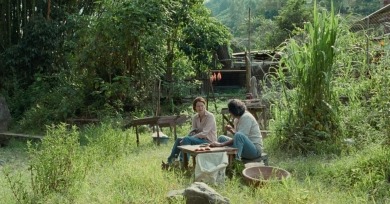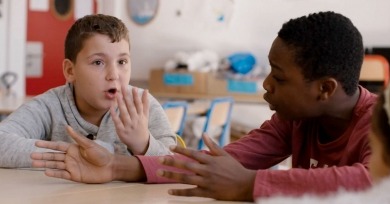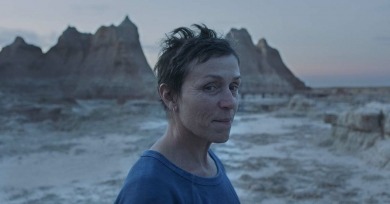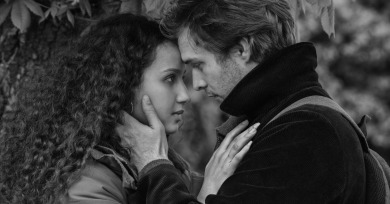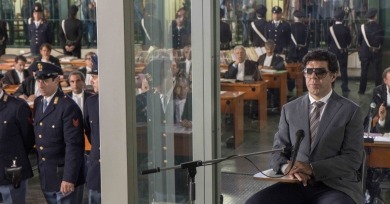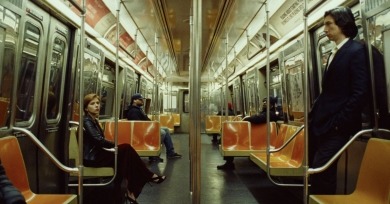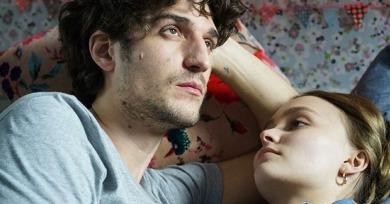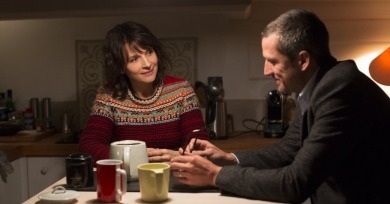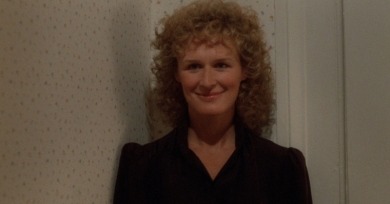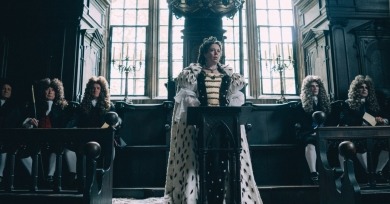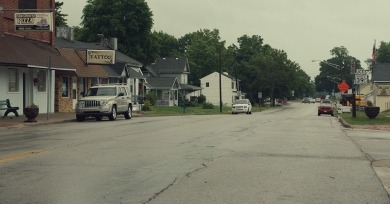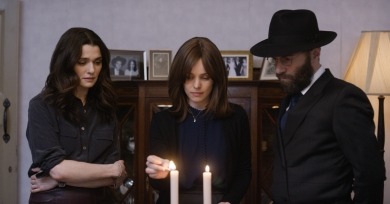Demi Kampakis
In an echo to his father's 2015 masterpiece Taxi and in the great Iranian cinematic tradition, notably the films of Abbas Kiarostami, Panah Panahi presents this vibrant, bracing, and tenderly devastating family portrait through the pressurized chamber setup of a road movie.
As with Uncle Boonmee and Cemetery of Splendour, Apichatpong often materializes traumas in the form of phantoms that hover in the margins of his protagonists’ imaginations, visiting and sometimes haunting them in the same way the present is always shaped by the ghosts of the pasts.
Baudelaire’s hybrid film metamorphoses into a textured testament to personal and spiritual growth, friendship’s creative symbiosis, and the cumulative effect of time and patience on a labor of love.
Amidst this stirring portrait of spiritual introspection runs a current of political malaise. It is most starkly felt though the stories shared by each of these houseless folk, laying bare the moral deficiencies at the rotten core of our social safety net, in a consumerist society obsessed with profit over public welfare.
Its gender dynamics disorient the era Garrel is trying to convey. Is this a retro love letter to a bygone era when it was still possible for a bus stop meet-cute to blossom into a full courtship; when long-distance lovers unironically corresponded through postcards?
While it’s tempting to view these histrionics as dramatic fabrications, almost everything that unfolds was captured on video recordings of the actual trial, and lifted from official testimony transcripts. Nonetheless, Bellocchio doesn’t resist the opportunity to ham up the fracas an extra notch or two, to discombobulating effect.
Marriage Story confronts the nature of divorce as a dehumanizing, lucrative institution: probing not just its emotional dynamics but also its social, structural, and economic ones.
In exploring love, sex, death, and adultery this way, screenwriters Garrel and legendary screenwriter Jean-Claude Carriere adequately probe the meandering contours of relationships and commitment, as well as the elusive nature of monogamy and desire.
Assayas has consistently returned to, and been keenly attuned to, the ways technology affects and reflects our social interactions and familial dynamics—with permanence, or the lack thereof, being a common focal point.
Elisabeth Moss plays the character at the center of this swirling psychological vortex, and does so with a reckless abandon that is cathartic and very impressive, if not slightly unnerving in its commitment.
Close is the kind of actor who excels at navigating the delicate balance between intense physicality, brewing shrewdness, and shattering vulnerability, which is why even her most morally compromised characters nonetheless have familiar strokes of humanity and sympathy.
The Favourite works in an idiosyncratic register that distills his austere and sometimes brutal gaze to darkly comic effect. Here, he reimagines the period piece as an acerbic battleground of wits, where no behavior, interaction, or pastime is too eccentric or primal.
I do not build out from an idea because I feel that is too restricting. In a sense, the final film is what I have learned. The final film has to be a dramatic narrative, which among other things expresses what I have learned about the place. It is not until the last stages of the editing process that the story is even found.
"We are becoming numb, and nothing can shock or affect us anymore. So how do you make an erotic scene that allows us to feel again, to feel the pain, the beauty, the urgency, the desperation, and the deep, animalistic but also spiritual connection between these two women?"

